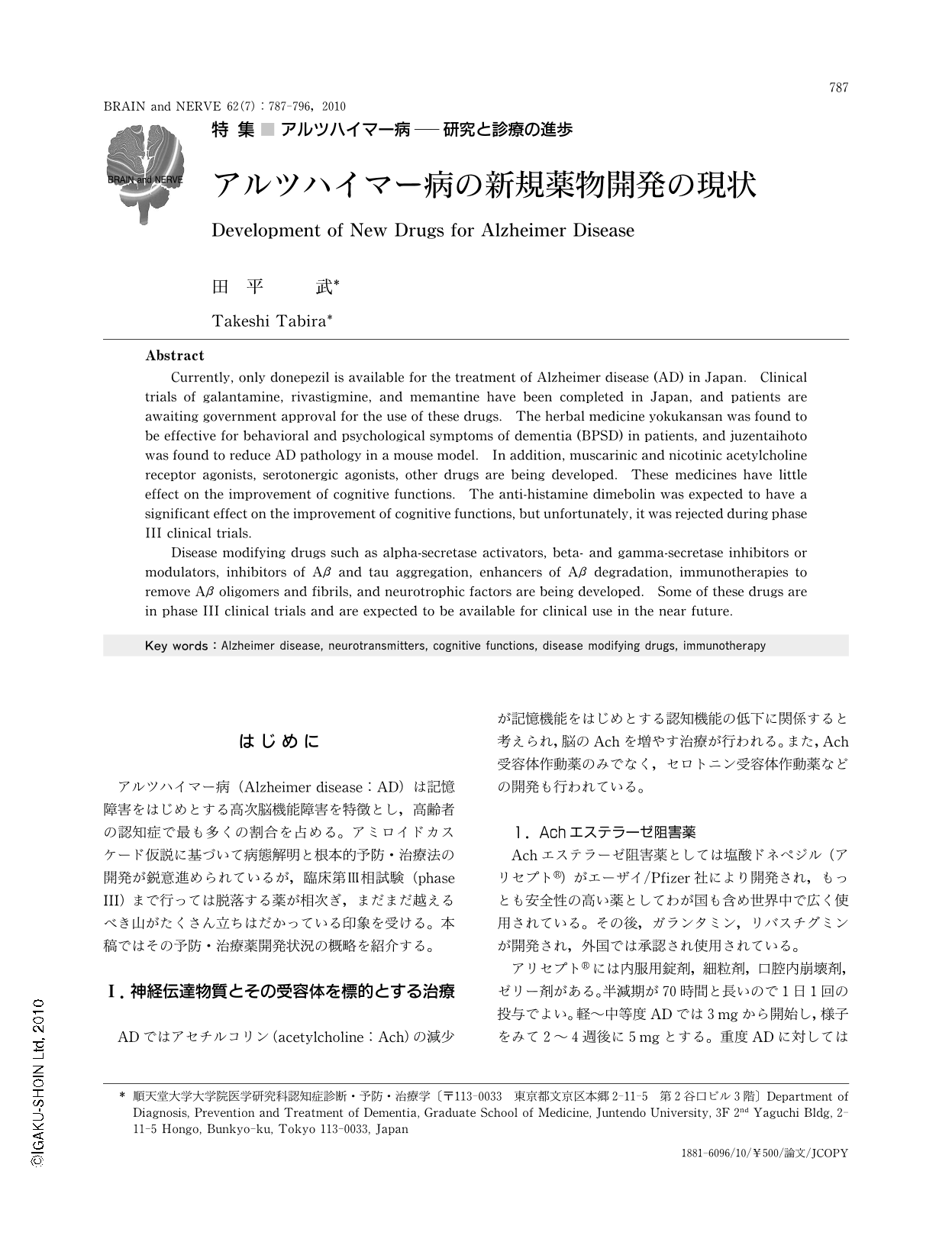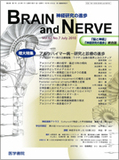Japanese
English
- 有料閲覧
- Abstract 文献概要
- 1ページ目 Look Inside
- 参考文献 Reference
はじめに
アルツハイマー病(Alzheimer disease:AD)は記憶障害をはじめとする高次脳機能障害を特徴とし,高齢者の認知症で最も多くの割合を占める。アミロイドカスケード仮説に基づいて病態解明と根本的予防・治療法の開発が鋭意進められているが,臨床第Ⅲ相試験(phase III)まで行っては脱落する薬が相次ぎ,まだまだ越えるべき山がたくさん立ちはだかっている印象を受ける。本稿ではその予防・治療薬開発状況の概略を紹介する。
Abstract
Currently, only donepezil is available for the treatment of Alzheimer disease (AD) in Japan. Clinical trials of galantamine, rivastigmine, and memantine have been completed in Japan, and patients are awaiting government approval for the use of these drugs. The herbal medicine yokukansan was found to be effective for behavioral and psychological symptoms of dementia (BPSD) in patients, and juzentaihoto was found to reduce AD pathology in a mouse model. In addition, muscarinic and nicotinic acetylcholine receptor agonists, serotonergic agonists, other drugs are being developed. These medicines have little effect on the improvement of cognitive functions. The anti-histamine dimebolin was expected to have a significant effect on the improvement of cognitive functions, but unfortunately, it was rejected during phase III clinical trials.
Disease modifying drugs such as alpha-secretase activators,beta- and gamma-secretase inhibitors or modulators,inhibitors of Aβ and tau aggregation,enhancers of Aβ degradation,immunotherapies to remove Aβ oligomers and fibrils,and neurotrophic factors are being developed. Some of these drugs are in phase III clinical trials and are expected to be available for clinical use in the near future.

Copyright © 2010, Igaku-Shoin Ltd. All rights reserved.


